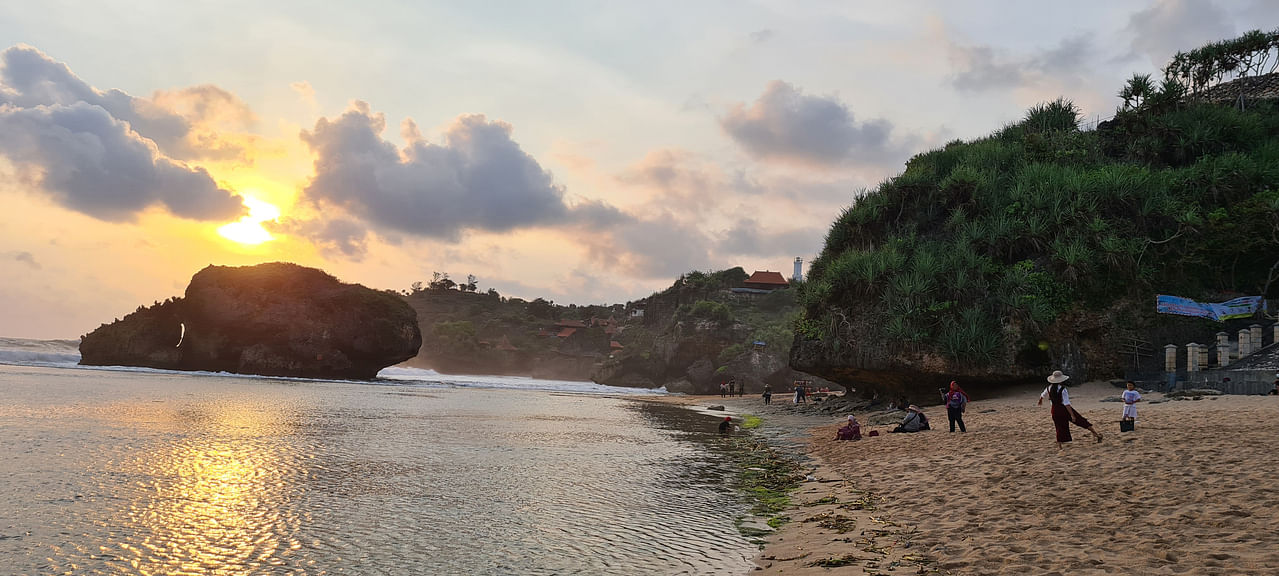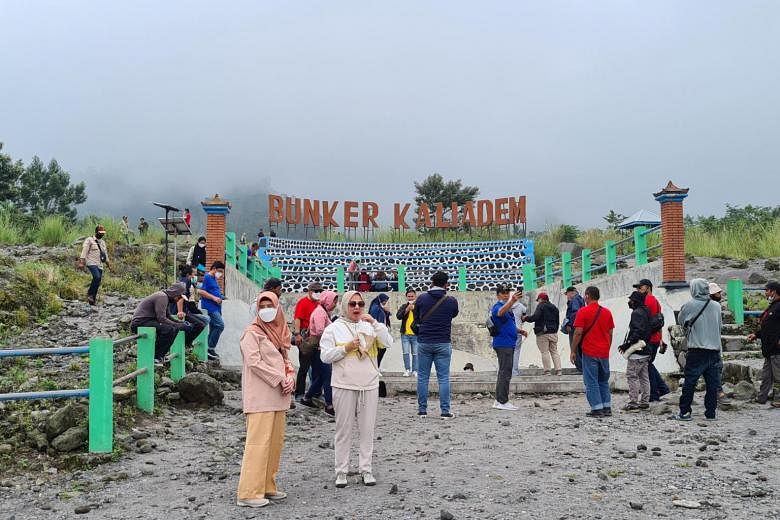JAKARTA - All holidaymakers travelling by air, sea or land anywhere in Indonesia will have to undergo a polymerase chain reaction (PCR) test as the government moves to avert another Covid-19 wave ahead of the year-end holiday.
Currently, only air passengers travelling to Java and Bali as well as Covid-19 high-risk regions in the country must present negative PCR test results. Foreign tourists from 19 countries allowed entry into Indonesia from mid-October have to provide three negative PCR test results and undergo quarantine.
The planned move to extend the testing regime has led to concerns in the tourism industry that the cost for the test could dampen enthusiasm for holidays, particularly among Indonesians.
The Transport Ministry said the measure was introduced as airlines were already allowed to carry more than 70 per cent of an aircraft's capacity.
On Sunday (Oct 24), it began requiring PCR tests for all air passengers, which must be taken 48 hours prior to departure. The cost was capped at 495,000 rupiah (S$47) for a test in Java and Bali, and 525,000 rupiah in other regions. Previously, domestic air passengers only needed to take the less accurate rapid antigen test, the cost for which was capped at 99,000 rupiah in both islands and 109,000 rupiah in other regions.
Health Minister Budi Gunadi Sadikin said on Wednesday that the cost for a PCR test would be lowered to 300,000 rupiah, describing this amount as among the lowest in the world.
But Mr Agus Ade Surya Wirawan, general manager of Bali-based Artotel Sanur, is worried, saying that a few guests have already cancelled their reservations because of the latest measure.
"With the tests, certainly there are additional costs for them to have a vacation in Bali," he told The Straits Times.
"Only guests who have the extra budget to cover the (test) costs can go on holiday. Those who have set a fixed holiday budget will rethink their plans as the additional costs are quite significant," he added.
The hotel has welcomed more tourists since the easing of restrictions on Bali in mid-September. The occupancy rate has gradually climbed from 8 per cent to 30 per cent in recent weeks.
Mr Ketut Ardana, chairman of the Bali chapter of the Indonesian Tour and Travel Agency Association, has also expressed concerns.
"If we want to revive tourism, the PCR tests should not be required for all transport modes taken by tourists. It is sufficient to have been fully vaccinated and take antigen tests," Mr Ketut said. "It's likely going to be hard to stimulate public demand for travel if the mandatory PCR test requirement is applied."
Some travellers, however, did not object to the new rule. University student Dinda Maharani Jayadi, who just returned from a vacation with her family in Labuan Bajo, an increasingly attractive destination in East Nusa Tenggara, said she did not mind taking a PCR test for the sake of safe travel.
"PCR tests are more accurate (than antigen tests). If I'm surrounded by people testing negative with the PCR tests, I feel safe," the 21-year-old Bandung resident told ST.

Coordinating Minister for Maritime Affairs and Investment Luhut Pandjaitan has said the PCR test policy would serve to balance the recent relaxation of restrictions on mobility around the country.
Citing a Transport Ministry survey, he said 19.9 million people in Java and Bali would be travelling for the year-end holidays, of which 4.45 million would be on the move around Jakarta and its surrounding satellites. He reiterated that Indonesia would take a "cautious approach" to ease curbs and enforce strict health protocols to avert transmission of Covid-19.
"We learn from many countries that have relaxed public activities and health protocols, then see a rapid surge in cases although their vaccination coverage has been much higher than Indonesia," he said.
Indonesia suffered spikes in infections after long holiday periods, particularly during Christmas last year and around New Year and Hari Raya this year when many people travelled with their families and friends.
Daily cases peaked above 50,000 in July after Hari Raya, overwhelming the country's already-fragile healthcare system.
Once the worst hit by the pandemic across South-east Asia, the country reported 719 cases and 29 deaths on Wednesday, bringing the total number of infections and fatalities in the sprawling archipelago to 4.2 million and 143,299 respectively.












